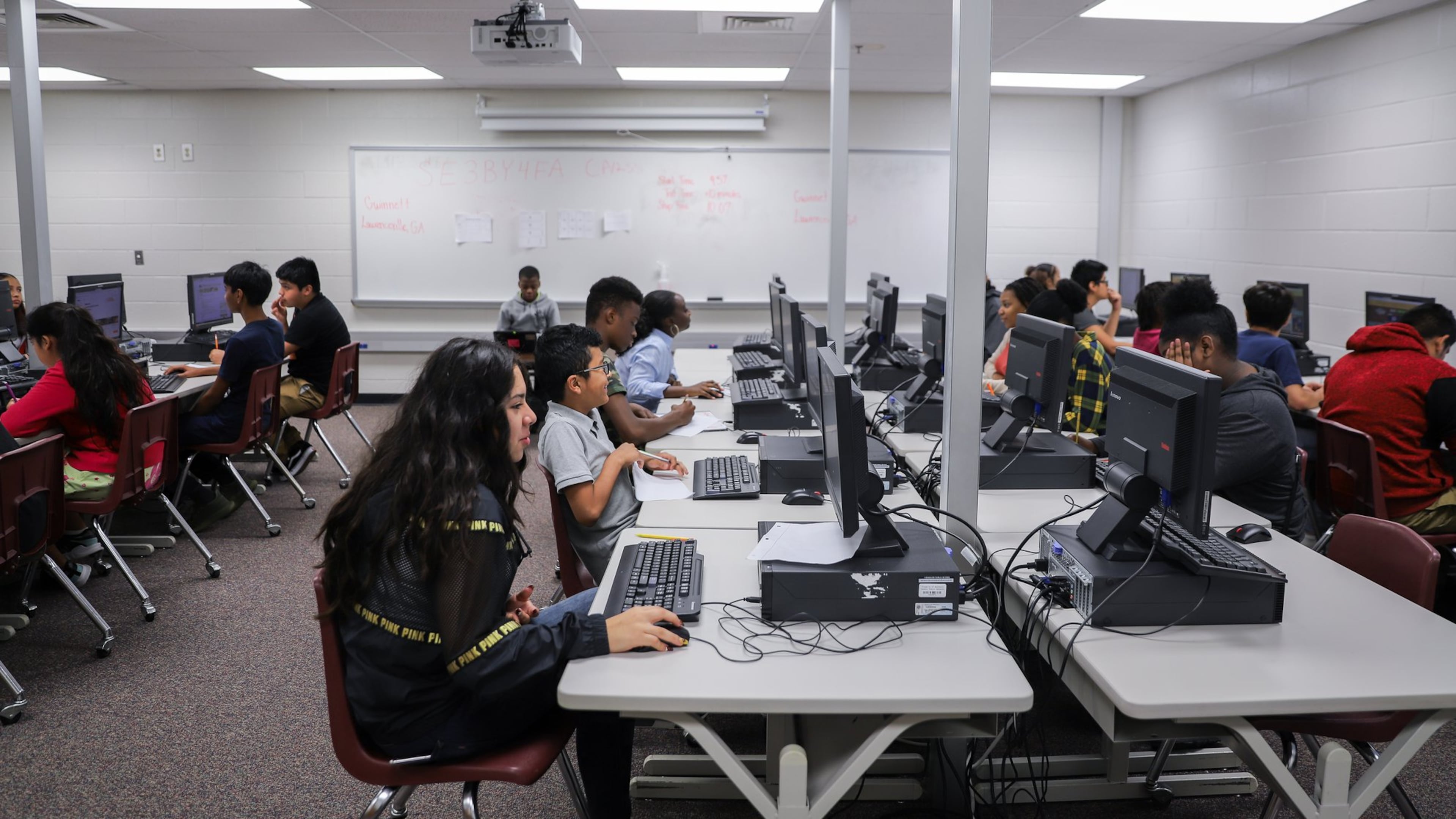Georgia schools unprepared for Milestones tests at home, officials say

The Georgia Milestones will likely be administered as usual this school year after they were canceled last spring, but officials say they are unprepared to administer them online or in homes where many students have chosen to attend classes during the pandemic.
Normally, schools can send proctors to the medically fragile, but there are probably too many students studying online to do that this year, said Allison Timberlake, who oversees testing for the state education department.
The End of Course Tests in four core high school subjects normally count for a fifth of the course grade, enough to alter the outcome for college admissions and scholarships. Most students test in the spring but some high school students take the Milestones after the fall semester.
There is pressure to reduce that during the pandemic, but so far a majority of state education leaders want the tests weighted heavily enough that students take them seriously. The latest proposal would weight the tests at 10%.
Some families with students attending classes online, such as Carole Veschi in Alpharetta, are worried. She said she and her partner, Jude, are 66 so their age puts them at a higher risk for serious complications from the coronavirus. One of their six adopted children has a disability and an underlying health condition, as well.
But another of their kids is an ambitious high school freshman studying online. He has straight As and cannot afford to skip the tests, Veschi said. “He wants to get into a good college, and this could really tank him."
Last spring, the U.S. Department of Education waived the federally-mandated state tests. That is unlikely to happen again this school year, even though some school districts deem conditions too unsafe to reopen classrooms. Even in districts that have opened, many students have chosen to remain online, with nearly 60% attending from home in Gwinnett County, the state’s largest school district.
Yet when Georgia and other states sought another testing waiver this school year, U.S. Education Secretary Betsy DeVos balked.
“If we fail to assess students, it will have a lasting effect for years to come," she wrote in a letter to the Council of Chief State School Officers in September. She said not to expect another waiver.
State School Superintendent Richard Woods, who had teamed up with Gov. Brian Kemp to request another waiver, reacted angrily, saying DeVos' decision “shows a complete disconnect” from the pandemic and vowing to “reduce the pressure” of the tests.
He advised schools not to use this year’s test scores when deciding whether to hold students back a grade and when scoring the performance of teachers and administrators. Then, he unveiled his plan to reduce the pressure on high school students: dropping the 20% weight of the tests for American literature, Algebra, biology and U.S. history to 0.01%. That, he explained to the state school board in early October, “was about as close to zero as I could get."
The Board rejected Wood’s idea and set the weight at 10%.
“I’m not ready to throw out this year and say it doesn’t matter,” said Mike Royal, a former board chairman who voted with the majority.
Reliable test scores are needed as an independent measure of school performance, said Christy Hovanetz, a former Florida Department of Education official.
“There’s a lot of subjectivity in course grades, so having at least one objective measure is pretty important," said Hovanetz, now a senior policy fellow with Florida-based ExcelinEd. Founded as the Foundation for Excellence in Education by former Florida Gov. Jeb Bush, the group advocates for accountability and alternatives to traditional public schooling, such as charter schools and private schools. “We do think there needs to be continued accountability for results because, remember, accountability is just ensuring that students are taught what they’re supposed to be taught,” she said, adding that Florida’s tests are 30% of a course grade.
Before the Georgia Department of Education can change the weight, it must gather public input. An online survey closes at 11:59 p.m. on Nov. 16.
The issue is sure to come up at a subsequent board meeting when Woods' staff is likely to point out that Georgia is unprepared to administer the Milestones online or in homes to all the students at home during the pandemic.
Woods' chief of staff, Matt Jones, said he didn’t raise the safety issue at the previous board meeting because he and his staff didn’t expect the board to reject lowering the weight of the tests to near zero.
“We assumed they knew a pandemic was going on," Jones said.
Veschi, the mother in Alpharetta, pulled three of her children out of the Fulton County Schools last summer, enrolling them at an online charter school that one of her now-grown sons had attended.
She remembers him taking his tests in a crowded hall at a nearby college several years ago, and thinks it would be unsafe if COVID-19 remains unchecked when the Milestones are administered next spring. She and her partner fret about who will look after their kids, especially their disabled son, if they get sick.
“I’m praying that things are better by then,” Veschi said.
Have your say
To comment on the weight of the Georgia Milestones End-of-Course tests, go to the Georgie Department of Education’s survey at https://www.surveymonkey.com/r/3TWWTMZ. Deadline for comments is Nov. 16.



